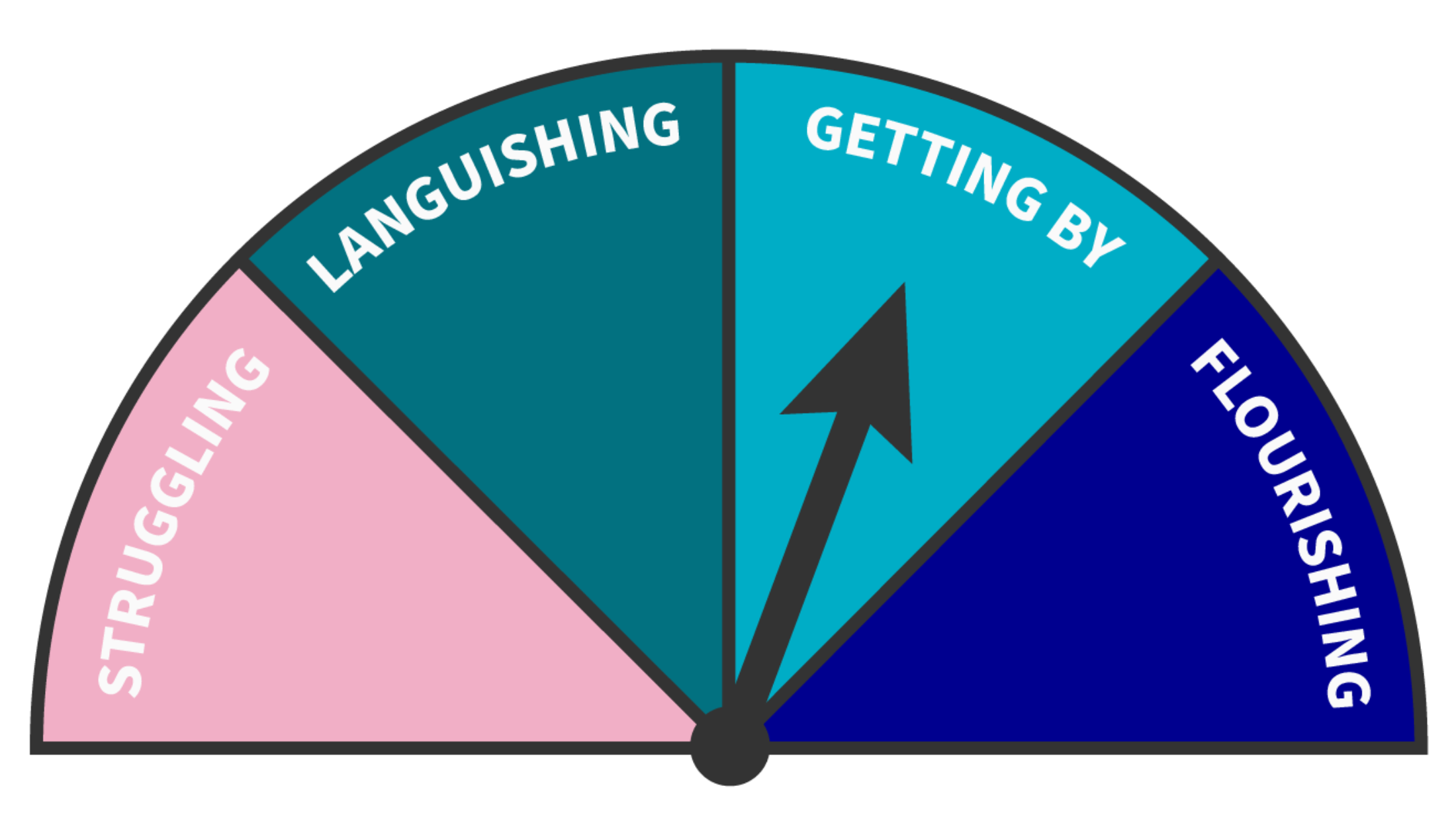Good mind health lets us think, feel and act in a way that allows us to enjoy life, overcome challenges that come our way and be more productive. And when we struggle with ill mental health, it has the opposite effect. In 2025:
50% of Brits are not in a positive state of mental wellbeing1
We want people, families, small business owners, and businesses to flourish
We spoke to 17,000 people to understand the state of mind health across 16 different countries, including the Americas, Europe and Asia for the AXA Mind Health Study. Now in its fifth year, it identifies how people are feeling and where they sit on the Mind Health Meter, from Struggling – associated with emotional distress - to Flourishing – the pinnacle of good mind health.

Us Brits have the worst mind health in Europe
People in the UK are more likely to be struggling with their mind health compared to any other country surveyed, aside from Japan. When compared to last year’s study, the number of people in the UK that are suffering from a mental health condition has remained at 37%.
1 in 5 people are Struggling
20% of the UK are currently struggling and 30% are languishing.
1 in 3 people have a mental health condition
Anxiety disorders (23%) and depression (21%) are the most common conditions.
3 in 4 people struggle due to their work environment
Trouble sleeping, stress, lack of confidence and loss of interest are common consequences.
Nurturing your mind health and how to deal with difficult feelings
Anyone can experience feelings of stress and anxiety. And it shows up differently depending on the circumstance and our ability to navigate it. It’s important to proactively look after our minds and seek help when the feelings become too much. And, just like adults, children and young people can experience a mental health condition. Dr Joshua Harwood, Child Clinical Psychologist, explains what signs parents should look for.
Mind health in the workplace
Data shows that those who believe their company care for the mental health of its employees and is taking action to help them are almost 2 times more likely to have flourishing mind health1. Take a look at our suite of webinars, mental health guides and wellbeing programmes.
Support for your business and teams
How can we help support you?
Read the AXA Mind Health Study
Understand the state of the nation’s mind health
Busting myths about anxiety
Sort fact from fiction with our mythbusters series from AXA Health experts
Dealing with anxiety in children
Dr. Joshua Harwood, Child Psychologist, shares practical tips
Explore tips to bounce back when things get tough
Discover support to help build your resilience









